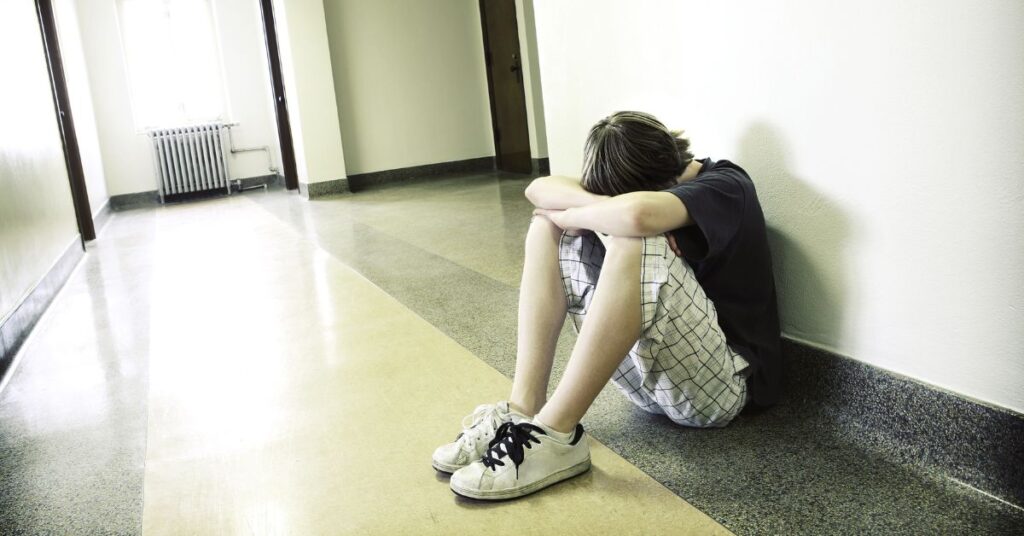Do you find that your teen with ADHD seems to be overly sensitive to criticism? Do they show a disproportionate amount of emotional pain when they are rejected by someone? Are they very bothered when someone teases them, even if it’s good natured? Your teen with ADHD may struggle with rejection sensitive dysphoria.
What is rejection sensitive dysphoria?
The Cleveland Clinic notes the definition of rejection sensitive dysphoria is “when you experience severe emotional pain because of a failure or feeling rejected. This condition is linked to ADHD and experts suspect it happens due to differences in brain structure. Those differences mean your brain can’t regulate rejection-related emotions and behaviors, making them much more intense.”
What are the signs of RSD?

We all feel badly when we are criticized, rejected or even teased. So what makes rejection sensitive dysphoria different? It’s the intensity of the feelings that those who have it feel. They also can experience it when these situations are minor or even think it is happening when it’s not.
So what are some of the signs your teen with ADHD may show if they have rejection sensitive dysphoria, or RSD?
- Obsessively dwelling on events that included criticism, rejection or other negative experiences
- Overreacting to minor criticism, rejection or teasing
- Fearing rejection persistently
- Feeling rejected even when they were not
- Misinterpreting constructive criticism or requests for more information negatively
- Struggling with perfectionism
- Believing they are a disappointment to someone important in their life
- Abandoning their goals due to fear of failure
- Withdrawing from others
- Having low self-esteem
- Thinking that no one likes them
- Talking negatively to themselves
Why are those with ADHD more affected by rejection sensitive dysphoria?
While rejection sensitive dysphoria is many times related to ADHD, it is not a symptom of it. It is considered a separate condition that seems to appear primarily in people who have ADHD but also has a connection to autism.
More studies are needed for RSD to better understand it. Some reasons why people with ADHD may experience RSD include:
- Researchers are still looking at whether brain structure differences could cause rejection sensitive dysphoria in people with ADHD.
- People many times negatively react to the impulsivity and hyperactivity of someone with ADHD, which may result in harsher or more frequent criticism and/or rejection than normal.
- Overstimulation of those with ADHD could result in how they interpret negative events.
- Behaviors of those with ADHD are perceived by others as outside of social norms, and they may be rejected more often by their peers.
- Many people with ADHD struggle with emotional dysregulation, and this could contribute to RSD.
What can you do to help your teen with ADHD overcome RSD?

If you are seeing these signs in your teen (or child or young adult) with ADHD, what can you do to help?
- Find a therapist who can provide cognitive behavior therapy. Your teen may already be seeing a therapist for various challenges they may face from their autism, ADHD and mental health issues. If so, talk to the therapist about the signs you are seeing and encourage your teen to work through those with them.
- Work with your teen to help them regulate their emotions better. See this post for suggestions.
- Help your teen overcome perfectionism. See this article for some ways to help.
- Talk to your teen’s doctor about potential medication that could help.
- Find ways to help your teen reduce their overall stress. This Psychology Today article has some good recommendations.
While my son J has never been diagnosed with rejection sensitive dysphoria with this ADHD, I do see many of the signs he has been struggling with it. For some of these, he has been working with his therapist to reduce his sensitivity with criticism and rejection.
Additional Resources
Do you need to dive into this topic deeper and find out more? Check out these resources that are available.
The Beginners Guide to Rejection Sensitive Dysphoria: How to Understand and Recognize Intense Rejection (affiliate link)
The Rejection Sensitivity Journal For ADHD (affiliate link)
The Perfectionism Workbook for Teens: Activities to Help You Reduce Anxiety and Get Things Done (affiliate link)
Mindfulness and Self-Compassion for Teen ADHD: Build Executive Functioning Skills, Increase Motivation, and Improve Self-Confidence (affiliate link)
Does your teen with ADHD struggle with rejection sensitive dysphoria? What tips do you have for others to help their teens? Leave a comment so that we can share and encourage each other on this journey.







